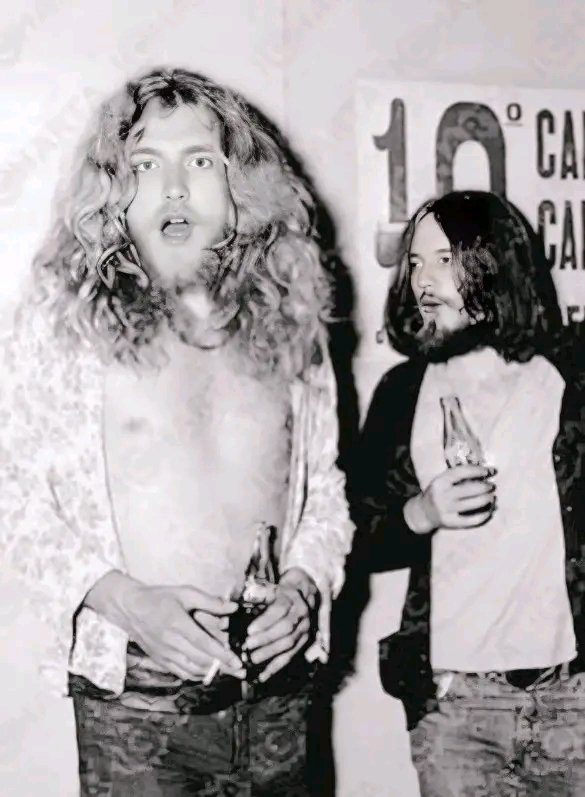“From Studio Alchemy to Silent Distance: The Evolving Musical and Personal Dynamic Between Robert Plant and John Paul Jones of Led Zeppelin”
When Led Zeppelin exploded onto the music scene in the late 1960s, the chemistry among its members was undeniable. While much attention has often focused on the flamboyant presence of frontman Robert Plant and the guitar wizardry of Jimmy Page, the creative relationship between Plant and bassist/keyboardist John Paul Jones was a critical yet sometimes underappreciated aspect of the band’s success. As founding members, Plant and Jones forged a powerful musical partnership that fused disparate influences into one of rock’s most influential sounds. Yet, beyond the studio and stage, their personal rapport has traveled a more nuanced path—one marked by collaboration, divergence, and understated tension.
John Paul Jones, a classically trained multi-instrumentalist, was known for his refined approach to arrangement and an innate ability to add texture and depth to Zeppelin’s music. Whether it was the eerie Mellotron lines on “The Rain Song” or the folk-tinged organ work on “No Quarter,” Jones’s contributions were vital in shaping the sonic landscape that underpinned Robert Plant’s mystical and blues-infused lyrics. Together, the two artists created a complementary duality—Plant’s raw, emotive vocals met by Jones’s intricate musical frameworks. Their collaboration was especially potent in the studio, where experimentation was encouraged and genre lines blurred.
However, the story took a more complicated turn after the death of drummer John Bonham in 1980, which led to the official dissolution of Led Zeppelin. In the years that followed, Robert Plant and Jimmy Page reignited their creative spark through various projects, most notably in the 1990s with their “Page and Plant” albums and world tours. Jones, however, was conspicuously absent from these efforts. This exclusion surprised many fans and reportedly stung Jones, who admitted in interviews that he learned about the Page and Plant reunion the same way the public did—through the media. While he never lashed out publicly, his comments hinted at a sense of betrayal and alienation.
Despite the silence and distance, the bonds formed during Led Zeppelin’s reign ran deep. When the surviving members of the band reunited in 2007 for a one-off performance at the O2 Arena in London, it marked a moment of musical and personal reconciliation. The show, dedicated to the late Ahmet Ertegun, founder of Atlantic Records, was hailed as a triumphant return. On that night, Plant and Jones shared the stage once more, their interplay as intuitive and seamless as ever—a testament to the legacy they had built together, even if the years between had been marked by separation.
In the end, the relationship between Robert Plant and John Paul Jones is emblematic of many artistic partnerships—rich in creativity, occasionally strained by circumstance, but grounded in a mutual respect forged through shared brilliance. While they may have taken different roads in the decades following Zeppelin’s peak, the music they made together continues to resonate, an enduring reminder of what happens when contrasting talents meet in perfect harmony.
